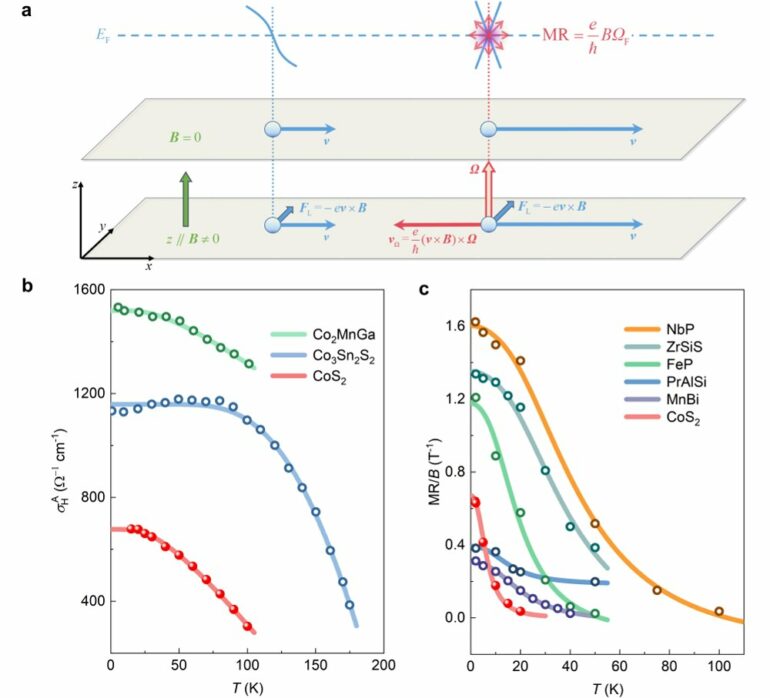A research group lead by Prof. Liu Enke from the Institute of Physics of the Chinese Academy of Sciences (CAS) has established a physical model of Berry-curvature-dominated linear positive magnetoresistance (LPMR), providing experimental evidence for this mechanism.
Relevant results were published in PNAS on Nov. 2.
Berry curvature, the pseudomagnetic field in momentum space, is the origin of many transport phenomena including chiral anomaly and intrinsic anomalous transverse transport properties. In topological materials, Berry curvature is extremely large because of special band structures, e.g., Dirac nodes, Weyl nodes, and nodal lines.
LPMR is a transport phenomenon whereby longitudinal resistance of a material varies linearly and positively with magnetic field. Although large LPMR has been widely reported in topological materials, the explanations for it in topological materials are ambiguous.
In view of this, researchers in Liu’s group and their collaborators investigated the relation between Berry curvature and LPMR based on a topological material candidate, cobalt disulfide (CoS2).
Their study showed that, in theory, the slope of LPMR is proportional to the average of the Berry curvature around the Fermi surface.
They proposed temperature-dependent anomalous Hall conductivity and LPMR equations based on a 3D-Weyl-node model. The experimental data of CoS2 and other topological materials reported previously can be fitted to the theoretical temperature-dependent equations, which is evidence for Berry-curvature-dominated LPMR.
This study unveils the relationship between Berry curvature and LPMR, thus facilitating the understanding and functional design of LPMR materials for magnetic sensing or information storage.
More information:
Shen Zhang et al, Scaling of Berry-curvature monopole dominated large linear positive magnetoresistance, Proceedings of the National Academy of Sciences (2022). DOI: 10.1073/pnas.2208505119
Provided by
Chinese Academy of Sciences
Citation:
Experiment unveils Berry curvature mechanism for linear positive magnetoresistance (2022, November 8)



